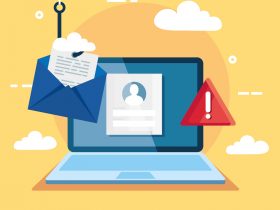To get a better understanding of how the American population felt about the use of COVID-19 tracing apps, Avira conducted a survey that revealed more than we expected. After asking over 2,000 Americans how they felt about tracing apps, it quickly became clear that the majority (a staggering 71%) do not plan on using a COVID-19 tracing app. While reasonings varied, the most common was simply that Americans believe using such an app would put their digital privacy at risk.
The survey also revealed other relevant information about digital privacy concerns. We quickly noticed a trend and found that online safety concerns vary by generation. The differences weren’t subtle either. While 29% of survey respondents over the age of 55 reported identity theft via large scale breaches their main privacy concern, only 18% of respondents between the ages of 25 and 34 agreed.
And while 27% of respondents over the age of 55 worry about malware and cybercrime, only 16% of Americans between the ages of 18 and 24 have the same level of concern. Unfortunately, such worries among older adults are not ill-founded. We set out to do a bit more research about how the 55+ community is targeted online.
Are older adults more at risk for online scams?
A CNBC report from 2019 confirms what many older adults and seniors already know; they’re often the deliberate targets of online crime. Researchers found that the elderly are more likely to be targeted for online financial fraud. Unfortunately, reports also found that when cyber crimes are successful, senior citizens tend to pay more than younger victims of similar crimes. When you also consider that the occurrence of online scams has been on the rise since the onset of COVID-19, it makes it easy to see that the senior community is at high risk.
Why older adults are at risk for identity theft
Multiple online scenarios can put anyone, including older adults and seniors at risk for identity theft or cybercrime. For example, online banking and shopping can quickly lead to a personal data breach. If purchasing from a merchant with a website that’s not secure, it can make it easy for a hacker to obtain personal and payment information. Signing into a banking account on a public network can also make it easy for hackers to gain access to your account and even move funds.
Using online health apps is another way older adults may be putting themselves at risk. In 2016, Quest Diagnostics experienced a data breach that exposed the personal information of 34,000 patients. With seniors now using apps to help them keep up on daily cardio, monitor their health stats, and remember to take medications, their sensitive data may already be at risk.
Another scenario to consider is phishing, a common scam that people of all ages can fall for. When phishing, hackers disguise themselves as reputable brands and businesses in an attempt to draw out personal information like usernames, passwords, and credit card details from unsuspecting victims. Unfortunately, these types of scams (online and offline) cheat American senior citizens out of $3 billion a year.
Introducing Avira Free Security
Say goodbye to scammers, hackers and slow devices with just one click
How to safeguard against identity theft
Unfortunately, just one innocent mistake online can lead to identity theft. In an interview with Avira discussing how to protect older populations from cybercrime, Vaselios Karagianno, Reader in Cybercrime and Cybersecurity at the Institute of Criminal Justice Studies, University of Portsmouth, had some apt advice.
“Take five minutes to think about the attachment that you’re clicking on or the email that you’re reading and what it says…Start being a little bit more critical,” says Vas. He goes on to mention looking for grammar mistakes in an email – a tell-tale sign of a phishing attack – and to call the bank in question to confirm the authenticity of an email requesting a hand over of personal information.
Here are some additional tips to keep in mind to protect yourself against threat actors:
Server security matters
When you are online, make sure you’re only using a secure server. Your home Wi-Fi network is typically best (as long as it’s password protected) for online banking and shopping. When you’re not at home and are going to be using an open Wi-Fi network, consider using a VPN for an additional layer of security.
Regularly monitor credit scores
You have a higher chance of catching illegal activity before too much damage is done by monitoring your credit scores regularly. Visit annualcreditreport.com, where you can receive a free credit report every year. If you currently have credit card accounts, many offer free credit scores. Speak to a representative from your card’s company to learn more.
Security software
Cybercriminals are continuously advancing their phishing and scam tactics, doing their best to keep wary consumers on their toes. One way to fight back is to install security software on all your devices. For example, an antivirus software protects against phishing, adware, and hacking. Or you can opt for Avira Free Security, a free, all-in-one product that safeguards you, your data, and devices from all types of threats – including the vulnerabilities lurking in your computer, like weak passwords or outdated software.














